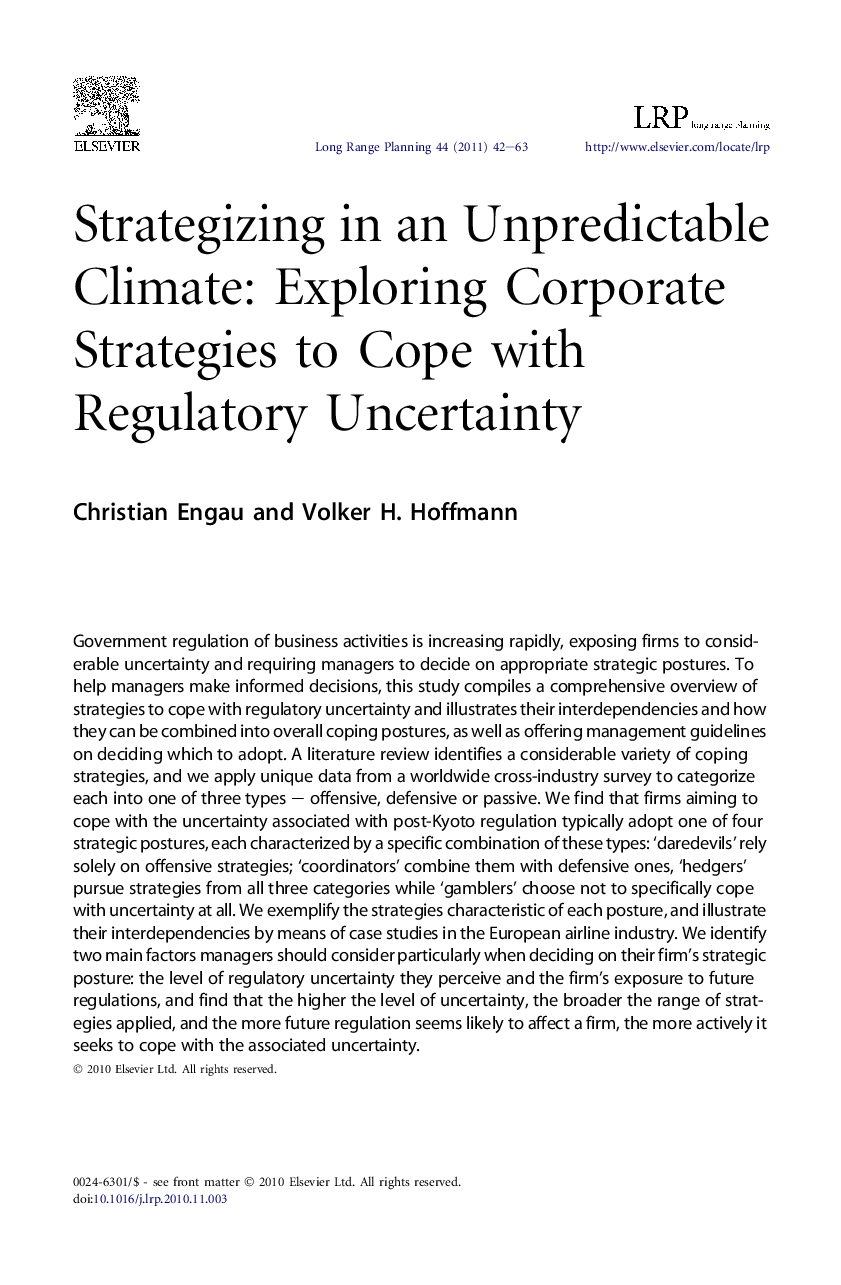| Article ID | Journal | Published Year | Pages | File Type |
|---|---|---|---|---|
| 1021344 | Long Range Planning | 2011 | 22 Pages |
Abstract
Government regulation of business activities is increasing rapidly, exposing firms to considerable uncertainty and requiring managers to decide on appropriate strategic postures. To help managers make informed decisions, this study compiles a comprehensive overview of strategies to cope with regulatory uncertainty and illustrates their interdependencies and how they can be combined into overall coping postures, as well as offering management guidelines on deciding which to adopt. A literature review identifies a considerable variety of coping strategies, and we apply unique data from a worldwide cross-industry survey to categorize each into one of three types – offensive, defensive or passive. We find that firms aiming to cope with the uncertainty associated with post-Kyoto regulation typically adopt one of four strategic postures, each characterized by a specific combination of these types: ‘daredevils’ rely solely on offensive strategies; ‘coordinators’ combine them with defensive ones, ‘hedgers’ pursue strategies from all three categories while ‘gamblers’ choose not to specifically cope with uncertainty at all. We exemplify the strategies characteristic of each posture, and illustrate their interdependencies by means of case studies in the European airline industry. We identify two main factors managers should consider particularly when deciding on their firm’s strategic posture: the level of regulatory uncertainty they perceive and the firm’s exposure to future regulations, and find that the higher the level of uncertainty, the broader the range of strategies applied, and the more future regulation seems likely to affect a firm, the more actively it seeks to cope with the associated uncertainty.
Keywords
Related Topics
Social Sciences and Humanities
Business, Management and Accounting
Business and International Management
Authors
Christian Engau, Volker H. Hoffmann,
